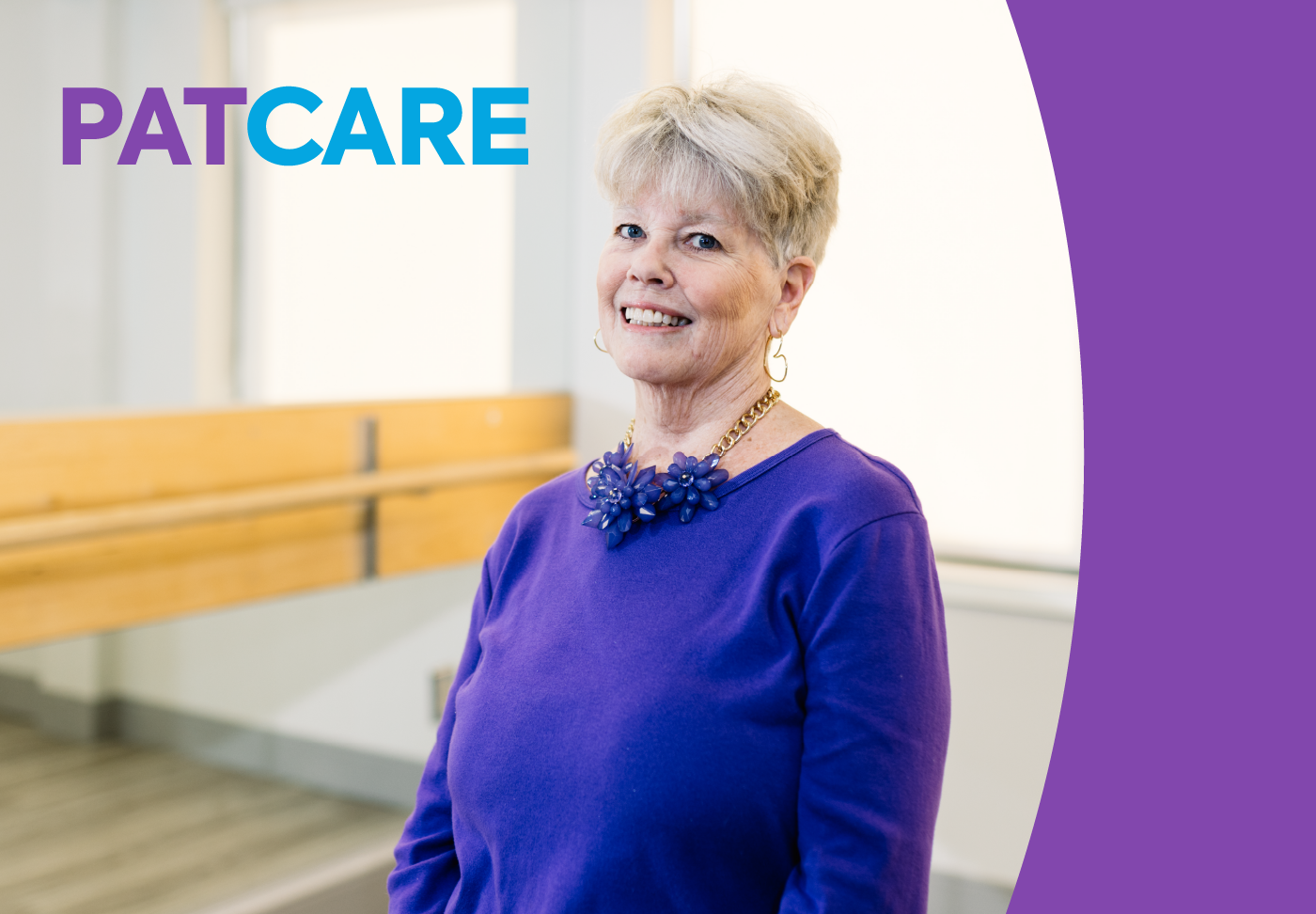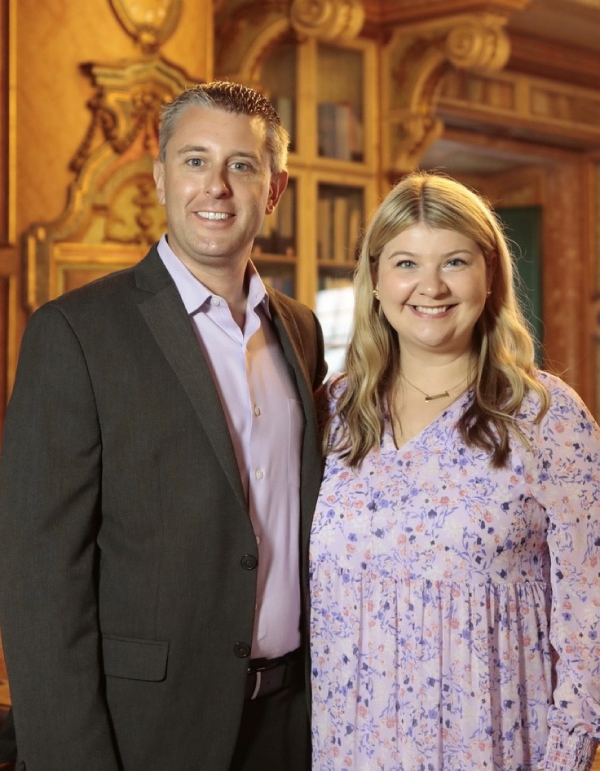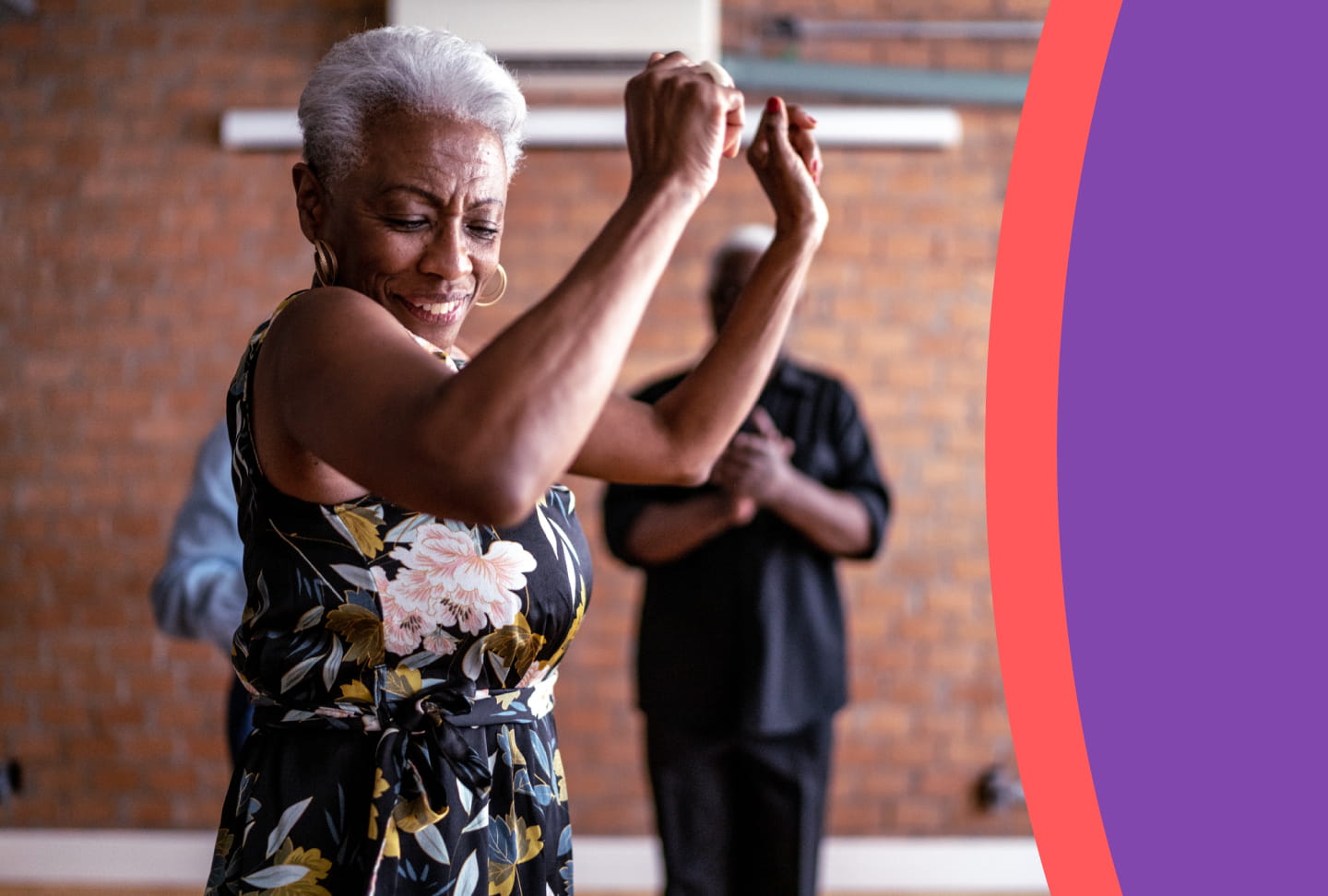The road to recovery after a stroke can be long and difficult. By following exercise recommendations from Wellstar’s rehabilitation care team, you can take an active role in the process and help shorten your journey.
According to the National Institutes of Health, falling can lead to delays in recovery for stroke survivors. Muscle stiffness and loss of balance are two common issues that contribute to increased fall risks. The expert providers at Wellstar work with patients and family members to develop individualized care plans that improve steadiness and flexibility. For added benefit, they also recommend you do the following exercises on your own.
Standing up and sitting down
Begin by sitting on a chair with a firm seat. Stand up fully and then slowly take a seat. Repeat as many times as you can tolerate initially. If necessary, use your hands to push into the standing position. Gradually progress to standing without the added assistance and completing more repetitions.
Step-ups
Begin by holding on to a stair rail. Step up onto the first step and then back down to the floor. Repeat as many times as you can tolerate initially. Step up with your stronger leg and lead with the weaker leg going down. Gradually progress to not holding on to the rail and increasing the number of repetitions.
Calf raises
Using a chair or countertop for balance, raise up onto your toes, lifting your heels completely off the floor. Slowly lower your heels back to the floor. Repeat as many times as you can tolerate initially. Gradually progress to not holding on and completing more repetitions.
Marching in place
Begin using a chair or countertop for balance and march in place for as many seconds as you can tolerate initially. Gradually progress to not holding on and marching in place for longer periods of time.
Shoulder flexion
Start with your arms at your side. With your palms facing each other, raise your arms in front of you as far as you can. Return to the starting position, then repeat.
Shoulder extension
Start with your arms at your side. With your palms facing each other, raise your arms behind you as far as you can. Return to the starting position, then repeat.
Shoulder abduction/adduction (lateral shoulder arm raises)
Extend your arms out to the side. Slowly raise your arms above your head. Return to the starting position, then repeat.
Elbow extension and flexion
Start with your arms at your sides, with your palms facing forward. Bend at your elbow so that your palm touches your shoulder. Return to the starting position, then repeat.
Wrist extension and flexion
Place your arms on a supported surface such as a table or desk, leaving your wrists free to move. Turn your palms up toward the ceiling and bend your wrists up and down.
Finger flexing and extending
Place your forearms on a surface such as a table or your lap with your palms facing up. Make a tight fist then open your hand and extend your fingers out until they are straight.
Get the most out of your exercise regimen
Establishing a regular exercise routine outside of your scheduled therapy appointments is important for your recovery. Perhaps equally important is completing the routine in a safe manner to avoid falling and to maximize your results. The experts at Wellstar suggest following these tips to maintain your safety.
- Dress comfortably. Your clothes should not limit your movements. Wear a hospital gown, pajamas or athletic clothing.
- Move slowly through all the movements.
- Do not hold your breath while doing any of these exercises. Breathe deeply. Count out loud during the exercises to keep your breaths evenly paced and remind you to breathe.
- Try to do the exercises while standing or sitting at the edge of your bed. If you do them this way, make sure another adult is around. This will help to make sure you are safe and reduce your risk of falling.
- Stop any exercise that causes you pain or discomfort and tell your doctor, occupational or physical therapist. Continue to do the other exercises that do not cause pain.
If you have any questions, talk with your doctor, physical therapist or occupational therapist. Learn more about the expert care from Wellstar’s inpatient rehabilitation program.
For more information on Wellstar Roosevelt’s specialty rehabilitation services, visit rooseveltrecovery.com.





